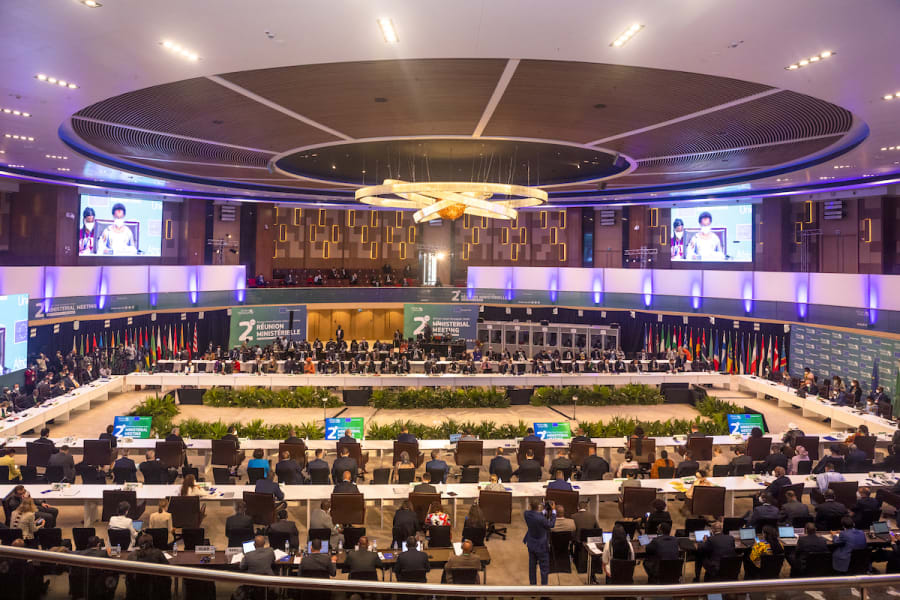Divided African Union to vote on whether to revoke Israel’s observer status in the organization
During his tenure, former PM Netanyahu invested in its diplomatic relations with the African continent

The normally united African Union of 55 member states is expecting a contentious debate during a summit coming up this weekend over whether to strengthen diplomatic relations with Israel.
At the heart of the African Union dispute is whether members should revoke Israel’s observer status in the organization. The opposition would need a two-thirds majority in order to do so.
Israel regained its observer status in the African Union in 2021, but the decision was opposed by South Africa and Algeria – two powerful member states that are hostile critics of Israel and strong supporters of the Palestinian Authority.
However, given the fact that Israel has relations with 46 out of the 55 member states, Israeli officials remain optimistic that the Jewish state will be able to keep its observer status.
Iddo Moed, deputy head of African affairs at the Israeli Ministry of Foreign Affairs, stressed the importance of strong relations between Israel and individual African states as well as with Africa as a continent.
“Working on a bilateral level with many African countries is wonderful and is great, and that is the very basic tenet for the relationship with Africa. But I think for Israel it is important also to establish formal relations with Africa as a continent,” Moed stated.
Founded in 2002, the African Union (AU) has traditionally been a consensus-driven organization. However, Na’eem Jeenah, executive director of the Afro-Middle East Center in the South African city Johannesburg, believes ties with Israel will be the first seriously divisive issue for the organization.
“Twenty years after the formation of the African Union, the first issue has come up that’s going to seriously split the bloc. No matter how the decision goes at the heads of state summit in February, the AU is going to be split in a way that it hasn’t been in the past,” Jeenah said.
HISTORY OF AFRICA-IRAEL TIES
Israel once held observer status in the Organization of African Unity, the AU’s predecessor organization, until it collapsed in 2002. However, Jerusalem initially lost its status in the new African Union organization, which was for many years dominated by the virulently anti-Israel Libyan leader Muammar Gaddafi until his death in 2011.
Until the early 1970s, Israel had excellent relations with most African states. Under the leadership of the late Israeli Foreign Minister Golda Meir, the Jewish state offered significant humanitarian aid to African nations, which often viewed Israel as an inspiring and successful anti-colonial state.
However, following the Yom Kippur War in 1973 and due to pressure from Arab nations, most African states severed their diplomatic ties with Israel. The end of the Cold War and the emerging Arab-Israeli peace process in the 1990s gradually rehabilitated African-Israeli ties.
Under the tenure of former Prime Minister Benjamin Netanyahu, Jerusalem began investing in its diplomatic relations with the African continent in the last decade. Netanyahu led several high-level Israeli delegations to several African states and relations began to improve dramatically.
The diplomatic investment eventually bore fruit when Israel regained its observer status in July 2021 after being excluded for two decades. At the time, Israeli Foreign Minister Yair Lapid welcomed the outcome and stressed the importance for African-Israeli ties.
“This is a day of celebration for Israeli-African relations. This diplomatic achievement is a step forward in improving Israel's foreign relations with the continent, following two anomalous decades,” Lapid declared.
While Algeria and South Africa remain hostile towards Israel, Morocco and Rwanda have emerged as Jerusalem’s most vocal supporters on the continent, which is once again divided on its future relations with the world’s only Jewish state.

The All Israel News Staff is a team of journalists in Israel.














